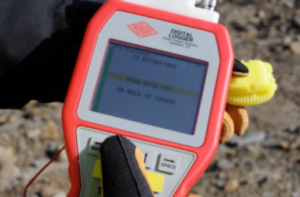Use of RFID Technology

RFID Blasting 2
According to Austin Powder, since the use of RFID technology. There is no need for physical contact between the recorder and the detonator through the recorder. Which makes it possible for the company to intelligently identify explosives such as detonators. The company said: “Austin Powder continuous improvement in all of its products. And is confident in incorporating RFID technology into the latest version of the E*STAR electronic activation system. RFID detonator tags not only provide flexibility but also save time. In a single operation , using RFID saves 50% time over traditional direct-connect programming. “E*STAR RFID allows blasters greater flexibility in when to record holes. Assign detonator timing and test detonator or branch circuit verification. The blaster also has the option to assign a timing to the detonator after the hole is loaded and tested for continuity. ”
Much Faster

According to Austin, the process using RFID technology is much faster than direct contact logging. Or other detonator programming methods. All the required detonator information is where it is needed. However, using RFID tags, the recorder display will still show all the necessary details about the detonators. One recorder can tag up to 1600 detonators. Austin claims that, unlike standard barcode labels.
Harsh Field Conditions
Harsh field conditions do not affect the effectiveness of RFID tags. The company adds that low temperatures, snow, mud or latex-covered tags. Or even heavy rain will not affect the data within the RFID tag. Making it the most reliable product on the market. “Our latest addition of RFID tags as a logging option provides some customers. With the ability to quickly extract critical information from RFID tags. That E*STAR electronic detonators use to assign delays.” Said Campbell Robertson, global manager of Electronic Initiation. Works in any condition, whether in direct sunlight, underground in low light, wet or muddy, or even latex-covered. What’s more, this tag and the data it stores won’t compromise by Solvent degradation.”





